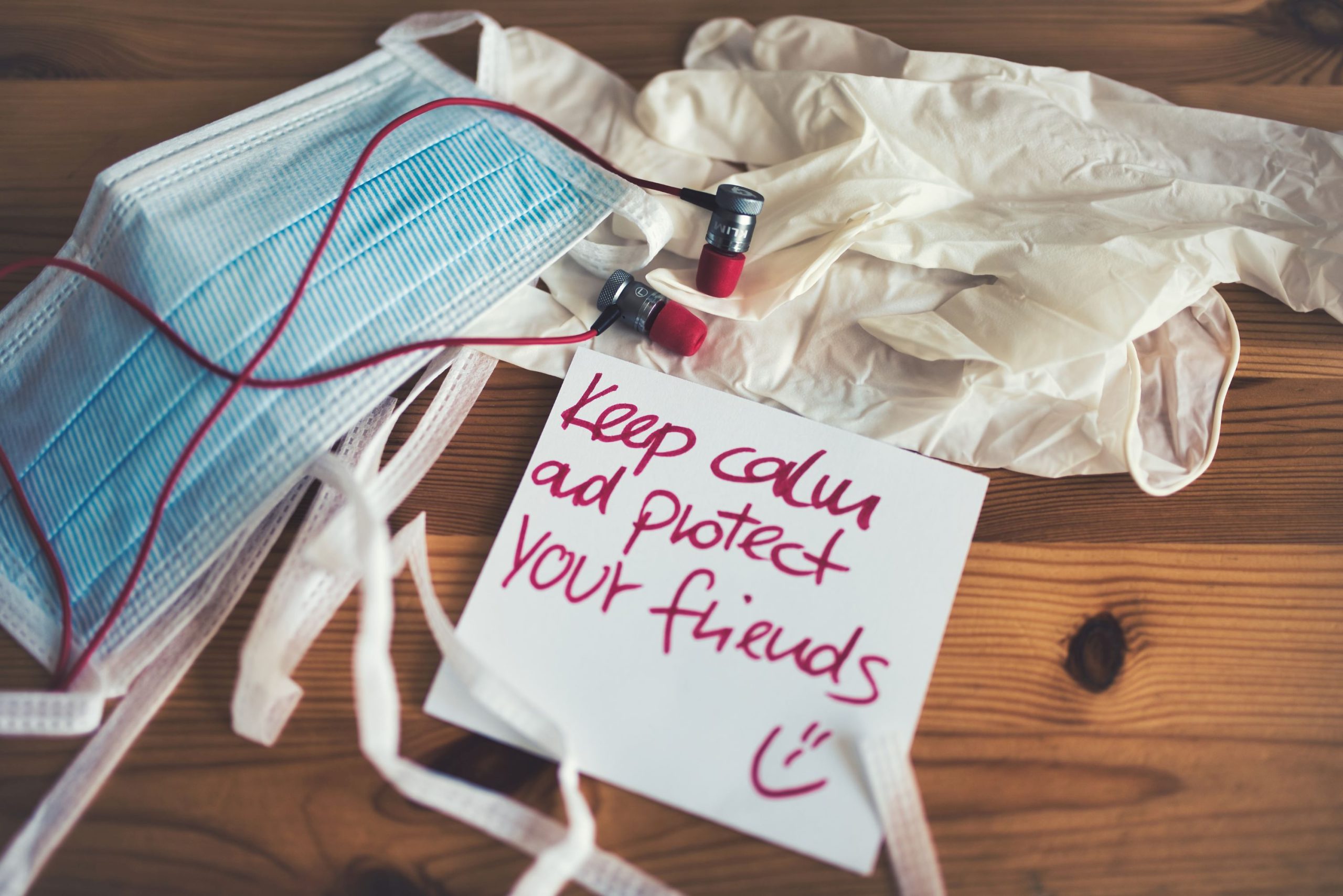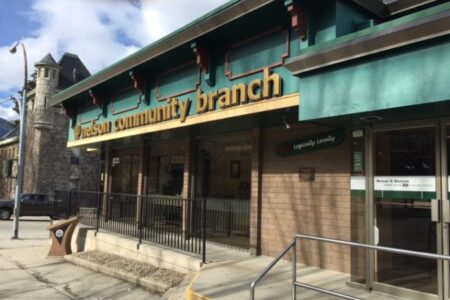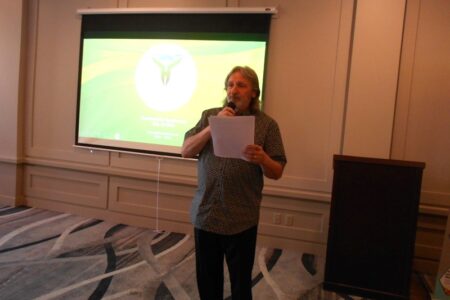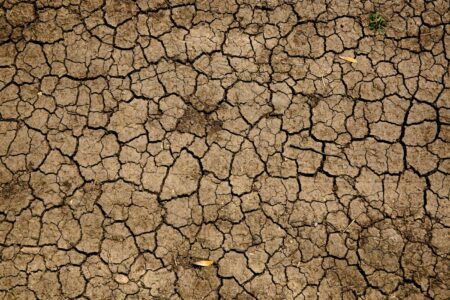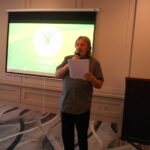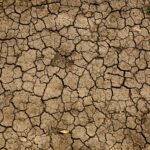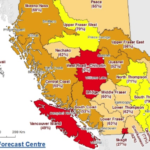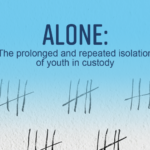Editorial: Toxic falsehoods, masks and COVID-19; Masks4all Rossland
There’s a load of unfiltered nonsense going around on social media about masks these days – memes claiming that they don’t work, memes focusing on “freedom!” and claiming that wearing a mask is a sign that one is subject to “mind control.” Conspiracy-theory rubbish, and dangerous rubbish at that. Right down there in the gutter with memes suggesting that wearing masks is somehow harmful.
Many readers have probably seen an earlier meme comparing wearing a mask with trying to keep mosquitos out with a chain-link fence. Well, excuse me, but that’s just DUH. The main purpose of wearing a mask is to prevent us from spreading our own little droplets into the air and potentially infecting and sickening others. It’s the considerate and civilized thing to do wherever we can’t be outside and at least six feet away from others.
Initial offical responses to the COVID-19 pandemic were inconsistent and not well-informed. It’s a whole new disease, and no one knew much about it; non-medical masks were originally thought to be ineffective because people thought only about the size of the virus – extremely small! – instead of the fact that most viral contagion spreads by means of virus-laden aerosols – those invisible droplets that we spew into the air around us when we talk, cough, sneeze, laugh, and perhaps even when we exhale.
It is those aerosol droplets that simple cloth masks capture, preventing asymptomatic but infected people from filling so much of the air around them with invisible contagion that can cause others to become ill.
A recent passionate opinion article in Maclean’s Magazine urges governments to get serious about mandatory mask-wearing, with notable examples of effectiveness. The article’s subtitle is “The excuses against mandatory masking are so bad they qualify as comedy. It’s not too late for a national mask plan to prevent a second wave.”
As “re-opening” progresses, and COVID-19 cases rise, and we go to stores where hardly anyone is wearing a mask, none of us can ever be sure that we have not picked up the virus from someone else and just aren’t showing symptoms yet. No, this isn’t fear-mongering – it’s caution-mongering. When riding a motorcycle, one does not have to be filled with fear to wear a helmet – it’s a simple precaution to protect the rider’s brain in case of a mishap.
With masks and COVID-19, wearing masks is a simple precaution to help prevent the disease from spreading in our communities and causing illness, with potential long-term physical damage or even death. We don’t need a second wave.
Of course, wearing a mask in public indoor spaces isn’t enough – we must continue with frequent hand-washing, continue with staying at least six feet away from other people as much as possible, and avoid touching our faces – especially eyes, mouth and nostrils. Here’s what Health Canada says now:
The best thing you can do to prevent spreading COVID-19 is to wash your hands frequently with warm water and soap for at least 20 seconds. If none is available, use hand sanitizer containing at least 60% alcohol.
To protect others, you should also:
· stay at home if you are ill
· maintain a 2-metre physical distance from others
o when physical distancing cannot be maintained, consider wearing a non-medical mask or homemade face covering
· avoid touching your face, mouth, nose or eyes
Wearing a homemade non-medical mask/facial covering in the community is recommended for periods of time when it is not possible to consistently maintain a 2-metre physical distance from others, particularly in crowded public settings, such as:
· stores
· shopping areas
· public transportation
[Emphasis added.]
Note that wearing a mask is currently only “recommended” – but it is becoming mandatory in more places, as authorities and business owners increasingly recognize the preventive value of masks.
BC is not yet among the jurisdictions making masks mandatory, but BC’s Public Health officer has strongly recommended that people wear masks wherever distancing is not easy.
A group of Rosslanders has been working to make it easier for people in Rossland to comply with Dr. Henry’s expectation that people will wear masks where distancing is difficult.
The people behind “Masks4all Rossland” are pleased with the community’s engagement. They issued a press release with the following information:
“Now that BC’s Provincial Health Officer, Dr. Bonnie Henry is recommending the wearing of non-medical face masks in certain situations” said Mayor Kathy Moore, “the demand is increasing and our seamstresses are doing their best to keep up with the demand.”
To date, Rossland volunteers have made over 1488 masks. These have been distributed in person, or through Ferraro Foods and Alpine Drug Mart IDA, to Rossland residents. An additional 300 were made to supply Area B Residents thanks to a generous donation from Area B in the Regional District of Kootenay Boundary. The many volunteers have been incredibly generous with their time, and many have been donating additional supplies to make the masks. It has been great to see the creativity and various designs that they are all using. Proof that the campaign is working is that we are seeing more people in our public places wearing them.
People can get the masks – when there are enough available – at Alpine Drug Mart in Rossland, and at Ferraro’s Rossland store: just ask the greeter, as your hands are getting sprayed.
The group expresses thanks to the many individuals who have contributed financially to the campaign. Of particular note was a very generous donation of $2700 from Area B and $500 from Rossland Fine Wines and Spirits as well as many individual contributions from $10 to $200. These donations have enabled us to continue to supply the seamstresses, and keep the production going.
While our local numbers of confirmed COVID-19 infections have been low, and our success in BC at “flattening the curve” is being touted across North America, we can not be complacent. The committee will continue to work with volunteer seamstresses to ensure there is a supply for the community.
Sam Segal, the medical lead on #Masks4All Rossland reminds people that “wearing a mask does not replace other public health measures such as physical distancing and handwashing, but adds another layer for preventing the spread, and protecting the people around you. Your mask catches the droplets that you produce when you are speaking, coughing or sneezing. You can be a carrier of the virus and not know it. Your mask protects me and my mask protects you.”
Community members can continue to help in two ways; first by making a financial donation or by volunteering to sew masks. Rossland Rotary is accepting financial donations to the project. “Your donation of $20 means we can make 10 masks for our community,” explains Fiona Martin from Rossland Rotary. “We would also appreciate more volunteer mask seamstresses, to help with production. We can supply patterns and material — we just need people to sew.”
Of course, wearing a mask is a good way to help normalize the practice, too.
Michelle Desjardins who has been one of the main mask producers during the last 2 months says, “Patterns are easy! Even if 50 of us make 20 masks each, that’s 1000 more masks available to local workers and residents.”
The Masks4All Rossland group would like to thank everyone who has engaged in this campaign, and hopes people will continue to be diligent in preventing the spread of COVID 19.
To make a financial donation go to https://rosslandrotary.org/Donate.html or send a cheque payable to Rotary Club of Rossland
To volunteer as a mask maker, contact Kathy Moore at mayor@rossland.ca or 250-521-1500
Mask patterns and mask making information can also be found on #masks4 all Rossland’s Facebook site. https://www.facebook.com/groups/masks4allrossland/
#Masks4all Rossland Team:
Physician Lead: Dr. Sam Segal
Community Lead: Mayor Kathy Moore
Distribution/Donation Lead: Fiona Martin, President Rotary Rossland
Project Lead: Kimberley Pegg kpegg@kbpa.ca


